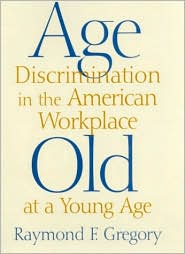The War on Moms: On Life in a Family-Unfriendly Nation
Review * How employers make child-rearing an emotional and financial burden for womenThe joy of having a baby quickly morphed into logistical panic when Devorah Gartner learned her newborn had suffered a prenatal stroke and needed daily physical therapy. So the computer software manager asked her employer for a month's leave to care for her daughter. The answer was no, which meant Gartner had to quit her job to care for her child. She lost her health insurance and spiraled into debt.This...
Search in google:
In most states, the average cost of keeping one infant full-time at a child-care center is greater than tuition at public college—or the average family's food budget. Only 42 percent of working mothers in the United States stay home for the first twelve weeks of their infants' lives. Because of their desperate need for income and flexi-bility, moms make up the vast majority of people who get caught up in multilevel-marketing schemes. Throughout the country, it is harder, rather than easier, for women to get health insurance once they're pregnant. There may not be any shooting going on, but plenty of American mothers feel like they're under siege. Between inadequate and, in many cases, nonexistent maternity leave, prohibitively expensive child care, and employers who are neither required nor inclined to make any concessions to the needs of working mothers, the American mom is routinely forced to choose between caring for her family and keeping her job—and the desperately needed income and benefits that go with it. These are not simply the problems of individuals; they have a serious negative impact on America as a whole. In The War on Moms, respected journalist Sharon Lerner reveals the great sea of beleaguered and overburdened people in America—mostly women, but some men, too—stuck between the need to support their families and the desire to live a decent life with them. Single or part of a couple in which both partners work, they have no one at home to handle the inevitable overflow of domestic responsibilities, leaving them impossibly squeezed by the combination of work and family that constitutes everyday life. Lerner connects this dismaying trend with the fact that the remarkable three-decade trajectory of women's advances in the working world has begun to flatten out, stall, and even decline in the United States in recent years. Lerner combines compelling and heart-wrenching interviews with stressed-out, struggling, financially-strapped moms—she had plenty to interview—with convincing statistical evidence of the size, severity, and impact of this growing problem. She exposes some of the most popular assumptions about the imbalance of work and life in this country as oversimplifications—and sometimes outright fictions. Perhaps the most insidious are that women are to blame for their problems; that male partners alone are the root of the problem; and that high-end employers could solve everything if they wanted to. She also exposes the myth of the feud between working mothers and stay-at-home moms. What do America's moms need that they're not getting? According to Lerner, guaranteed paid maternity leave; decent, affordable child care; health coverage; and good, flexible work options would make a huge difference. She shows that generous policies to support women in other industrial nations have increased fertility as well as women's participation in the work force—and makes the case that these supports could lessen both the depression among mothers and the financial stresses that many families experience after childbirth in the United States. Nobody officially declared a war on motherhood, but the result couldn't be much worse if they had. Read The War on Moms and find out what must be done to stop the fighting.
Click to read or download
Acknowledgments. Introduction. 1 Falling: When Needs Bring Families Down. 2 Supermom Returns: Doing It All without Having It All. 3 'Til Dishes Do Us Part: The Problem with Blaming Men. 4 The Problems We Wish We Had: A Couple of Choices, None of Them Good. 5 Testing the Bootstraps: What Exactly Is Keeping the Women of Mississippi Down? 6 Congratulations, Now Back to Work: Keeping Mothers and Babies Apart. 7 Good Day Care Is Hard to Find: The Working Mom Crisis. 8 The Elusive Part-Time Solution: The Stay-at-Home Mom Crisis. 9 Baby Strike: The International Motherhood Experiment. 10 The Blame Game: How and Why We Wound Up in Last Place. Epilogue. Notes. Index.
\ From the PublisherHow employers make child-rearing an emotional and financial burden for women\ The joy of having a baby quickly morphed into logistical panic when Devorah Gartner learned her newborn had suffered a prenatal stroke and needed daily physical therapy. So the computer software manager asked her employer for a month's leave to care for her daughter. The answer was no, which meant Gartner had to quit her job to care for her child. She lost her health insurance and spiraled into debt.\ This is not an individual tragedy, writes Sharon Lerner in "The War on Moms: On Life in a Family-Unfriendly Nation," but a national fiasco.\ The U.S. is failing its mothers. The happy event of a birth often presages disaster for women in this country, the majority of whom get little support in the form of affordable, quality childcare or guaranteed paid maternity leave.\ Lerner wants to get the revolution started, and her book is a direct appeal for federal intervention to help moms struggling to hold jobs and raise kids at the same time.\ Dads have challenges too, and increasingly pitch in with housework and childcare, but it's mothers who still, on average, weather the financial and domestic impact of raising children.\ After becoming parents, most women's incomes go down, while for men, salaries go up. Giving birth, writes Lerner, is "the new financial turning point in many women's lives." She even digs up one study that finds each child a woman has increases her probability of being poor by 5.4 percentage points.\ The debate of the past decade over whether women should choose to work or stay home with kids is a perverse diversion, argues Lerner persuasively.\ There is, in fact, no real choice. Women usually neither "opt out" of work, nor do they gamely pump breast milk while typing on BlackBerrys in executive suites, since so few occupy those suites to being with, and so many are pushed out by employers hostile to flex-time or part-time work.\ One of Lerner's most important contributions here is to remind working parents that the out-of-control feeling is not their fault: It's a policy problem.\ Women may be working more, but families somehow have less to work with, as the cost of food, gas, housing and healthcare increases. This leads to situations such as that faced by Gartner, who was compelled by a sick child and no flex-time to quit the very job that provided her family's insurance.\ The recently passed healthcare bill may soon ease the burden, especially for women who will no longer be denied insurance because of the "pre-existing condition" of pregnancy. But getting companies to step up won't do, Lerner writes.\ There is no widespread economic justification for corporations to initiate flexible workplace provisions for hourly workers, the majority of whom are women. Even the few family-friendly companies that do honor flex-time cover only a small percentage of full-time salaried workers.\ The solution? Lerner calls for more government intervention, in the form of mandated paid maternity leave, paid sick leave and a national system of affordable, accessible childcare.\ Without these supports, working parents can face emotional and physical agonies.\ Take, for example, the issue of maternity leave. It's not just a nicety to allow women to coo in seclusion with their newborns. Often, it's a medical necessity.\ Women who have had Caesarians are told by doctors to rest for several weeks — but the majority go back to work sooner than that, at risk of losing wages or even their jobs. (Shockingly, only 42% of working mothers stay home for the first 12 weeks of their babies' lives.)\ What really makes a working mother want to weep, however, is knowing how good it is elsewhere.\ The United States is one of just a handful of countries that do not offer paid maternity leave. Nations such as Germany or Australia dole out money just for having kids. And after infancy is over, there is free, high-quality childcare in France, Belgium, Denmark and Sweden.\ In the United States, on the other hand, childcare centers are often costly or dicey, with few regulations and low pay for teachers.\ Lerner idealizes the Europeans' solutions, without getting into the more controversial economic trade-offs. Nor is she terribly concerned with the gritty details of political solutions at home.\ For a better primer on getting quality preschool for every 3 and 4-year-old, look at another recent book, "The Promise of Preschool" by Elizabeth Rose, which dissects the push for public preschool in the United States, as well as incremental policy transformations over decades.\ Instead, Lerner wants change, and she wants it now. "The War on Moms" is an infuriating, galvanizing read — a page-turner for working moms. (Los Angeles Times, May 7, 2010)\ "An infuriating, galvanizing read — a page-turner for working moms."\ —The Los Angeles Times\ \ \







